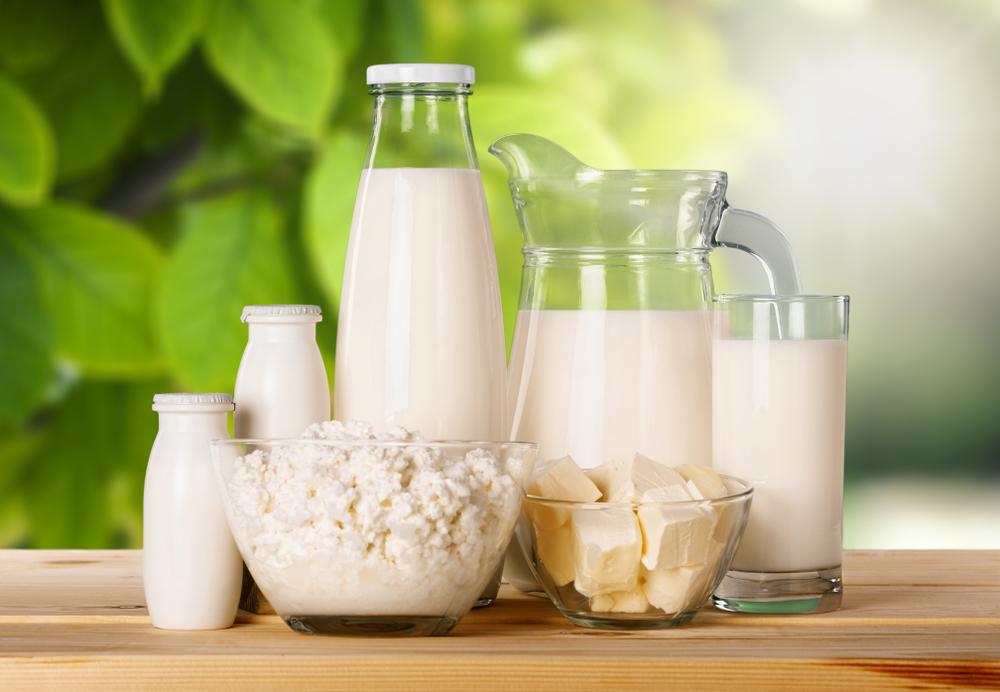
The Surprising Link Between Dairy and Osteoporosis: How Drinking Milk May Increase Bone Fracture Risk
Ever since the early 1990s, we've been told to drink milk because it builds strong bones. It's worth noting that the famous Got Milk? ads were devised not by a medical organization but by an advertising agency as a way to boost dairy sales. These days, milk sales are down and a top dairy company just declared bankruptcy. Are American consumers starting to realize milk isn't all it's cracked up to be?
Surprising Research on the Link Between Dairy and Osteoporosis
The International Osteoporosis Foundation defines osteoporosis (literally, "porous bone") as a chronic, primarily age-related disease that causes a person's bones to become less dense and more fragile. This loss of bone density leads to an increased risk of fractures.
As many as 1 in 5 men and 1 in 3 women will sustain an osteoporotic fracture at some point in their lives.
What causes osteoporosis? Getting into the nitty gritty details is beyond the scope of this post (hint: changing hormone levels, physical inactivity, and excessive alcohol consumption are a few major risk factors). But what we would like to talk about is the surprising connection between this leading bone disease and dairy.
Once practically seen as a panacea for improving bone density, dairy is shown in some studies to negatively impact bone health and has been associated with a number of other health problems. Consider:
- A 2014 study published in BMJ found that higher rates of milk consumption was actually associated with an increased risk of bone fractures. This was based off observational data from a sample of more than 105,000 men and women. Researchers also found that women who drank 3 or more glasses of milk per day had nearly double the risk of death and cardiovascular disease and a 44% increased cancer risk compared to women who drank one glass per day or less. Meanwhile, men who drank three or more glasses of milk daily had a 10% increased overall risk of death. The researchers further determined that men and women who consumed more milk had higher levels of biomarkers of inflammation and oxidative stress in their blood and urine (both of which are associated with other health problems like heart disease, cancer, and accelerated aging). The presence of these unhealthy biomarkers has been shown to be caused by a sugar compound in dairy milk called D-galactose.
- Another 2014 study was published in JAMA Pediatrics. This was a prospective cohort study involving over 96,000 men and postmenopausal women. After collecting data over a 22-year follow-up period, the researchers discovered that adults who reported drinking milk in their teen and childhood years weren't any less likely to develop osteoporosis and hip fractures later in life compared to adults who didn't drink milk. Incredibly, for each additional glass of milk consumed during their teen years, older adult men had a significant 9% increased risk of hip fracture.
Conclusion
The idea of drinking dairy to prevent osteoporosis is not fully supported by the research and a lot of inconsistencies exist in the literature. Multiple studies show that milk consumption is associated with neutral or even harmful effects on bone health, and may even increase the risk of osteoporotic bone fractures. Luckily, you don't need to consume dairy to get bone-healthy nutrients like calcium, Vitamin D, and magnesium. Instead, reach for leafy green veggies, nuts, avocados or fruit.
JAMA LINK: https://jamanetwork.com/journals/jamapediatrics/fullarticle/1769138 ; and a different link https://www.sciencedaily.com/releases/2013/11/131118162929.htm
https://nutritionfacts.org/2017/01/31/why-is-milk-consumption-associated-with-more-bone-fractures/
https://www.nhs.uk/news/food-and-diet/milk-may-be-linked-to-bone-fractures-and-early-death/
https://www.ncbi.nlm.nih.gov/pubmed/15883441
https://www.pcrm.org/health/diets/vegdiets/health-concerns-about-dairy-products
https://www.ncbi.nlm.nih.gov/pubmed/12540414 ;
https://www.hsph.harvard.edu/nutritionsource/what-should-you-eat/calcium-and-milk/calcium-full-story/#ref27
https://drhyman.com/blog/2017/07/27/still-consuming-dairy/
https://www.ncbi.nlm.nih.gov/pubmed/20949604
https://www.ncbi.nlm.nih.gov/pmc/articles/PMC3775240/
https://consensus.nih.gov/2010/images/lactose/lactose_finalstatement.pdf
https://www.washingtonpost.com/news/to-your-health/wp/2014/10/31/study-milk-may-not-be-very-good-for-bones-or-the-body/?noredirect=on&utm_term=.6459a9b5b920





.png?v=14052428765372906161761701960) Previous Post
Previous Post
%20copy.png?v=62173825240595680121761701960)